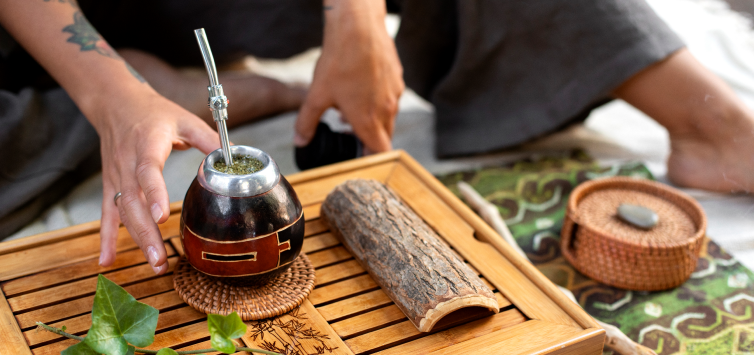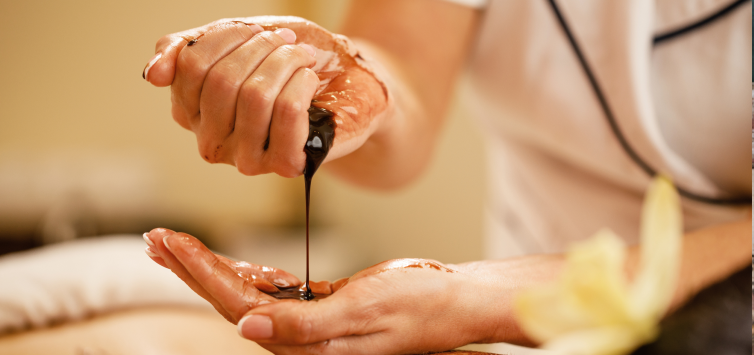Blog
Expert insights for your well-being journey. Your health is our priority.
Ayurveda and Sleep: Natural Solutions for a Restful Night
“Nearly one-third of the adult population struggles with insomnia, yearning for the bliss of a good night’s sleep.”
The sleep deprivation epidemic impacts the daily lives of many, causing fatigue, impaired focus, and even health risks. A chronic lack of sleep weakens the immune system and makes people more susceptible to illnesses.
In response, a growing number of individuals are turning to natural solutions to improve sleep quality. Ayurveda, an ancient Indian medicine system, offers holistic approaches to achieving a restful night’s sleep.
Sleep: The Key Pillar of Health in Ayurveda
In Ayurveda, sleep is one of the three pillars of health, alongside diet and a regulated lifestyle. The concept of “Tridosha” (Vata, Pitta, Kapha) plays a crucial role in understanding sleep patterns. Each dosha type influences sleep differently:
- Vata Imbalance: Waking up tired and experiencing daytime fatigue could indicate a Vata imbalance. People with this imbalance may also experience light sleep with frequent waking, anxiety, and racing thoughts.
- Pitta Imbalance: Difficulty falling asleep, waking up during the night feeling hot or restless, and irritability might be signs of a Pitta imbalance. Pitta individuals may also struggle to unwind in the evenings.
- Kapha Imbalance: Excessive daytime sleepiness, feeling sluggish upon waking, and difficulty getting out of bed in the morning may suggest a Kapha imbalance.

Optimizing Sleep With the Ayurvedic Clock
Ayurveda emphasizes the importance of aligning your sleep schedule with the natural rhythms of the day. The Ayurvedic body clock, also known as the Dinacharya cycle, suggests ideal times for sleep and waking based on the dominant doshas during different phases:
- 6:00 PM – 10:00 PM (Kapha Time): This period is governed by Kapha and promotes relaxation and winding down. Ayurveda recommends a light dinner during this time and avoiding stimulating activities.
- 10:00 PM – 2:00 AM (Pitta Time): Pitta governs this phase, focusing on internal cleansing and detoxification. It is considered the most crucial time for deep sleep.
- 2:00 AM – 6:00 AM (Vata Time): Vata takes over during this period and promotes lighter sleep and preparation for waking up. Ideally, you should be in the later stages of sleep or waking up feeling refreshed by this time.
Ayurvedic Practices for a Blissful Night’s Sleep
Ayurveda and sleep are closely intertwined. Incorporating Ayurvedic practices into your routine can promote restful and restorative sleep.
- Dinacharya (Daily Routine): Establishing a regular sleep-wake schedule is essential. Ayurveda recommends going to bed before 10 PM and waking up before sunrise, ideally during Brahma Mahurat (around 4:30 AM).
- Pre-Sleep Rituals for Relaxation: Incorporate relaxing activities before bed, such as light reading or a warm bath with calming herbs. Practices like Abhyanga (self-massage) with Ayurvedic oils and light stretching help prepare the body for sleep.
- Creating a Sleep-Conducive Environment: Ensure your bedroom is a sleep sanctuary—cool, dark, and clutter-free. Using calming essential oils like lavender or chamomile helps promote relaxation.
- Dietary Tweaks for Better Sleep: Gut health is closely linked to sleep quality. Ayurveda recommends a light, easily digestible dinner at least two hours before bedtime. Avoid heavy meals or stimulants like coffee and alcohol close to bedtime.

The Power of Herbs: Ayurvedic Sleep Remedies
- Ashwagandha: This adaptogenic herb is a popular choice for its stress-relieving and sleep-enhancing properties. Ashwagandha helps regulate cortisol levels, the stress hormone to promote relaxation and sound sleep.
- Jatamansi: This herb boasts calming effects on the mind and nervous system. It can help quiet racing thoughts and induce peaceful sleep.
- Brahmi: Often referred to as the “herb of grace,” Brahmi promotes mental clarity and reduces anxiety, both of which can contribute to better sleep.
- Chamomile: A well-known sleep remedy across cultures, chamomile flowers possess calming properties that ease tension and promote relaxation.
- Valerian Root: This herb has been traditionally used to improve sleep quality. It interacts with GABA receptors in the brain, promoting sleep onset.
While these herbs are generally safe for most people, it is important to consult with an Ayurvedic practitioner for personalized recommendations.

Finding Balance for a Restful Night
The quest for a good night’s sleep can feel overwhelming, especially as insomnia and sleeplessness become increasingly common. Ayurveda, with its emphasis on holistic well-being, offers a wealth of knowledge and practices to help achieve restful slumber naturally.
Remember, you don’t have to struggle with sleeplessness in silence. Deepam is dedicated to empowering you towards comprehensive wellness and can provide tailored solutions to your sleep requirements. Explore our website to discover a range of Ayurvedic services, or contact us at info@deepammeditours.com to learn more.